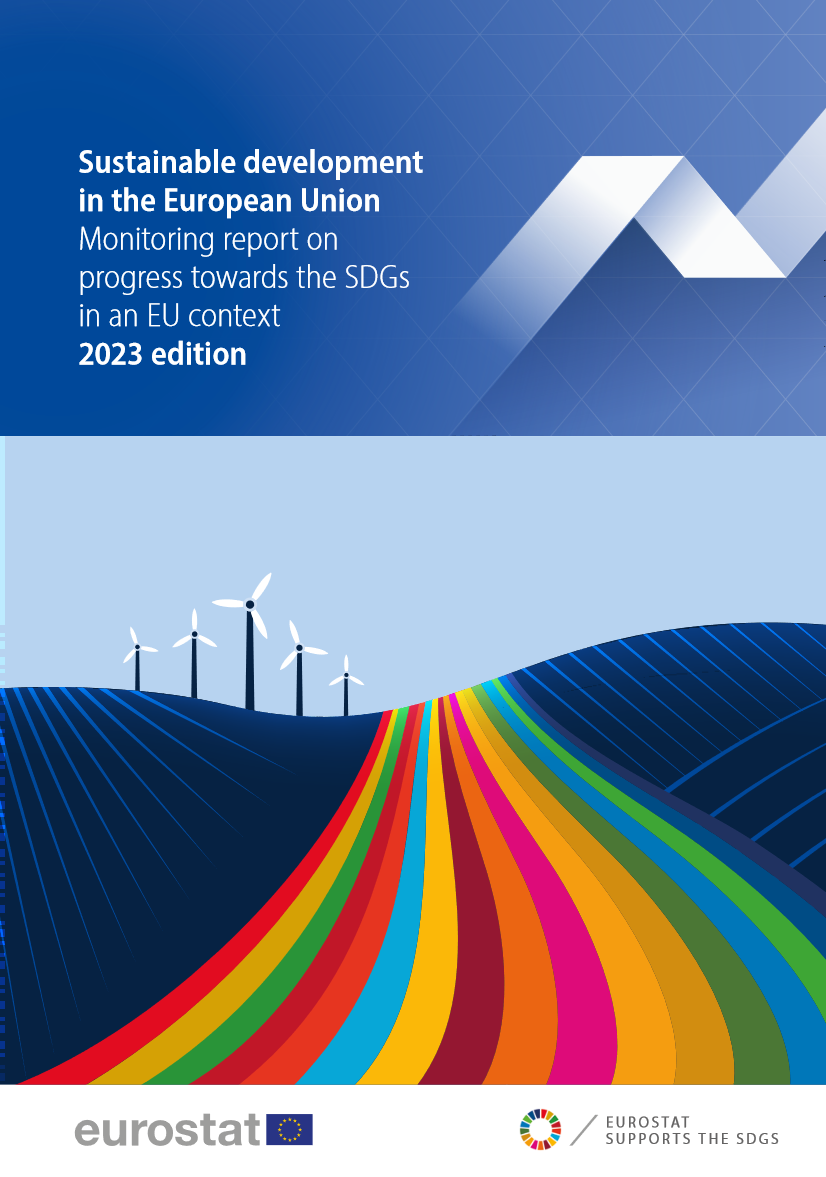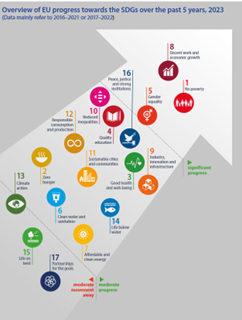Sustainable development in the European Union – 2023 Edition

date: 13/07/2023
Eurostat's seventh regular report on progress towards the Sustainable Development Goals (SDGs) in the European Union (EU) context was published on 24 May.
Sustainable development has long been a fundamental principle enshrined in the European Treaties and has remained a central focus of European policy. The adoption of the 2030 Agenda for Sustainable Development and its 17 SDGs by the UN General Assembly in September 2015 has further invigorated global efforts toward achieving sustainable development. The EU is fully committed to actively contributing to progress towards the SDGs.
Eurostat's publication is based on the EU SDG indicator set, which consists of approximately 100 indicators organized according to the 17 SDGs. This indicator set has been developed in collaboration with numerous stakeholders, and it emphasizes aspects relevant to the EU perspective for each SDG. The report presents statistical data and trends related to the SDGs in the EU over the past five years (referred to as the "short-term"), and when available, it also provides insights into the past 15 years (referred to as the "long-term"). The 2023 edition also analyses the impacts of Russia’s invasion of Ukraine and the COVID-19 pandemic during 2022 and the beginning of 2023 that are visible in Eurostat’s official statistics.
Overall, the goal-level assessment in this year’s SDG monitoring report shows that the EU has progressed strongly towards many socio-economic goals over the most recent five-year period of available data, while trends in the environmental domain have been less favourable.

More information.
